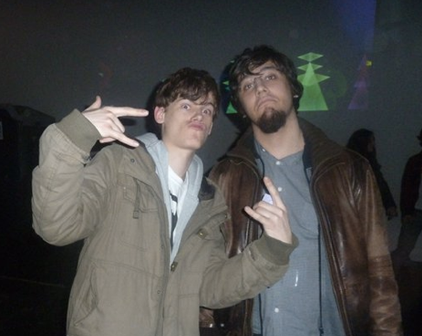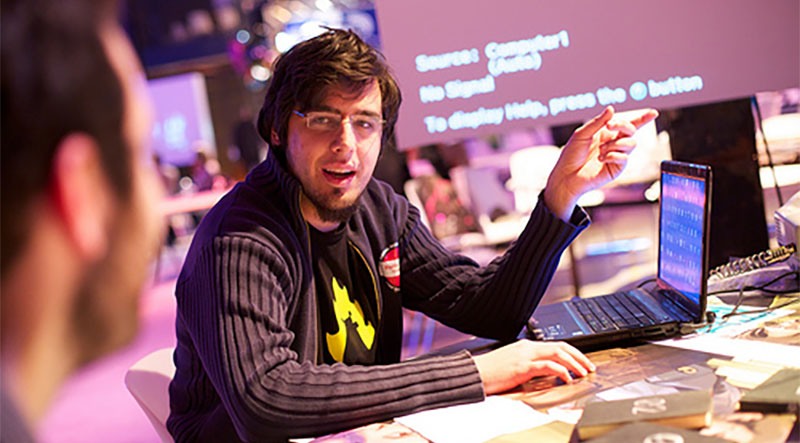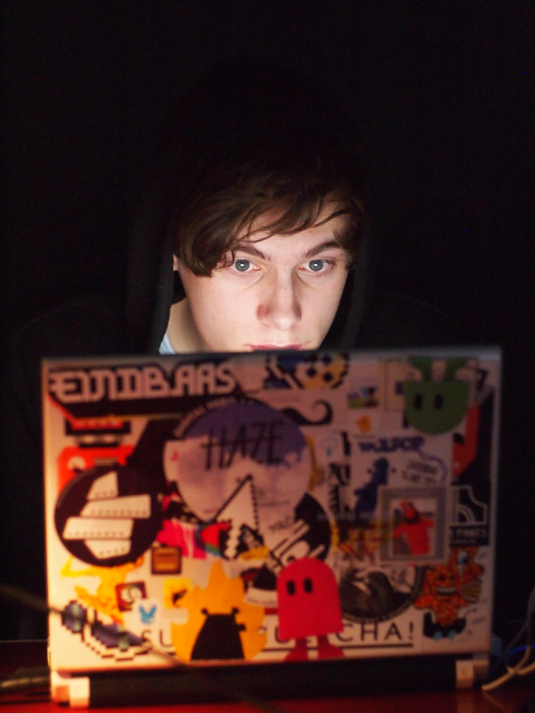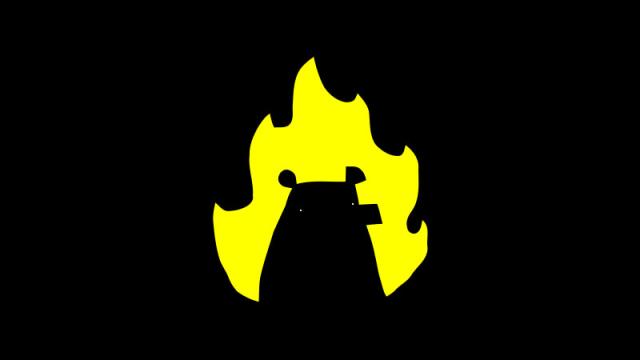In 2010, two Dutch students — Rami Ismail and Jan Willem Nijman — founded an independent video game studio. It would start with some fishing, go on to release games like Nuclear Throne and Luftrausers, and now in 2020 is shutting down like a rock band deciding yeah, you know what, enough is enough.
So broken is this industry that we’re used to seeing developers and their studios go out one way and one way only: succumbing to the relentless pressures of life in the video game business by closing their doors, usually as a result of some kind of sales or development disaster.

It’s fitting then that Vlambeer — a studio that has done as much as any other over the past decade to redefine what it means to be an independent developer and the kind of success one can achieve — bucks that trend by simply riding off into the sunset. Both co-founders have announced today that they’re winding the company up on its tenth birthday, and going their separate ways.
There’s no business failure, no stinking turd of a game and no upset community in their wake. Just two guys looking at themselves, their place in life in 2020 vs when they began, and a mutual decision that, yeah, it’s probably time to call it a day.
In 2010 I wrote about a stupid, funny little game I had come across called Radical Fishing. The post is so old it’s not even on our servers anymore (here’s a spectral vision of it on Kotaku Australia), so old that I describe them as, “A new Dutch indie called Vlambeer,” and after laughing at the trailer and writing it up I got on with my life, never expecting — this is harsh, but it’s the nature of this business — to ever see or hear from them again.
My bad. Radical Fishing was honed into Ridiculous Fishing, one of the best phone games ever made, and in addition to finding the time to release a Serious Sam spin-off, Gun Godz and Yeti Hunter, Vlambeer also graced us with the incredibly successful Luftrausers. All within the space of just a few years.
[referenced id=”626515″ url=”https://www.kotaku.com.au/2014/03/luftrausers-the-kotaku-review/” thumb=”https://www.gizmodo.com.au/wp-content/uploads/sites/3/2014/03/19/pqfx8f0acb1sfu6dwpot-300×179.png” title=”Luftrausers: The Kotaku Review” excerpt=”Luftrausers makes you feel like you’re constantly in the danger zone.”]
Vlambeer’s peak probably came in 2015, with the release of their next game, Nuclear Throne, a roguelike that had taken years to put together. I say the peak here not to denigrate anything that came afterwards but because, following on from so many high profile games coming out in such quick succession, nothing came afterwards. The studio hasn’t released a game since. Which in hindsight should probably have suggested something was up.
[referenced id=”599287″ url=”https://www.kotaku.com.au/2013/10/nuclear-throne-is-like-an-8-bit-borderlands/” thumb=”https://www.gizmodo.com.au/wp-content/uploads/sites/3/1970/01/01/599287_-nNoCmSMyZk-300×169.jpg” title=”Nuclear Throne Is Like An 8-Bit Borderlands” excerpt=”Not only did Vlambeer make another great shoot-em-up, they’re also live-streaming the game’s development twice a week while the game is in early access. Check out the gameplay above and learn the meaning of “explosive revenge”.”]
“It honestly feels surprisingly natural for us to close the studio down,” co-founder Rami Ismail tells me. “It’s not really without nostalgia – Vlambeer has done incredible work with incredible people that we’re very proud of over the past decade – and in working together we have grown so incredibly much from being 20-year old over-confident punks to now being 30 and more aware of our responsibilities and our abilities.”
“Maybe because of that growth, it has become really clear that what the two of us want to do with our lives is just different. After Nuclear Throne it felt a bit like we had proven everything Vlambeer had to prove, and after a well-earned break after such a demanding project we realised that we had both found our own separate ways forward.”
“It’s more of a return to our original aesthetics, and that was fun and it is going to still come out in the future, and it was still cool to work on a project together – but when we started talking a week or two ago about whether we should take the opportunity of our 10th anniversary to shut down the studio, it was very much a foregone conclusion,” Ismail says.

“Vlambeer was always at its best when the two of us could do our own thing, when we had our own responsibilities, and when we worked to make space for one another to excel at our craft. In a way, this is just a very extreme version of that.”
“I agree that it didn’t necessarily feel planned, but still very natural and it’s probably been a long time coming,” Jan Willem adds. “Both of us were always at our best when we took big jumps together, and shutting down the studio feels like another one of those.”
“Like Rami explained, we’ve always worked very independently from each other. We figured out very early in our history that we shouldn’t really share overlapping responsibilities, and Rami and I met in person maybe a few times a year, often by accident at some games event. In that way we’ve never really been a traditional games company. Despite all that (or actually because of it) we’ve been able to work with incredible people and make games we can be very proud of, it’s been a really good ride.”
While — pending Ultrabugs’ release, at least — this spells the end of Vlambeer, it doesn’t mean it’s the end of the pair’s involvement with video games, and indie titles in particular.

Ismail, already well-known for his indie advocacy, is not only going to continue developing solo projects, but also says he wants “to try and make the games industry more accessible and fair”, and consult with “small independent developers around the world with limited access to our industry”.
Jan Willem, meanwhile, says, “I’m still very interested in finding ways to work with small teams to sustainably make good games and have a nice life. Not under a studio label, but as individuals. It worked out for Minit, and Disc Room is coming out soon, and hopefully I’ll be able to do more of that in the future!”
“Vlambeer was never meant to be forever, we initially just wanted to give it a go, maybe five years would be a good run. The fact that we made it this far has been incredible, and we hope people don’t see this as a sad thing, but as a reason to celebrate a decade of Vlambeer-arse games.”

Leave a Reply